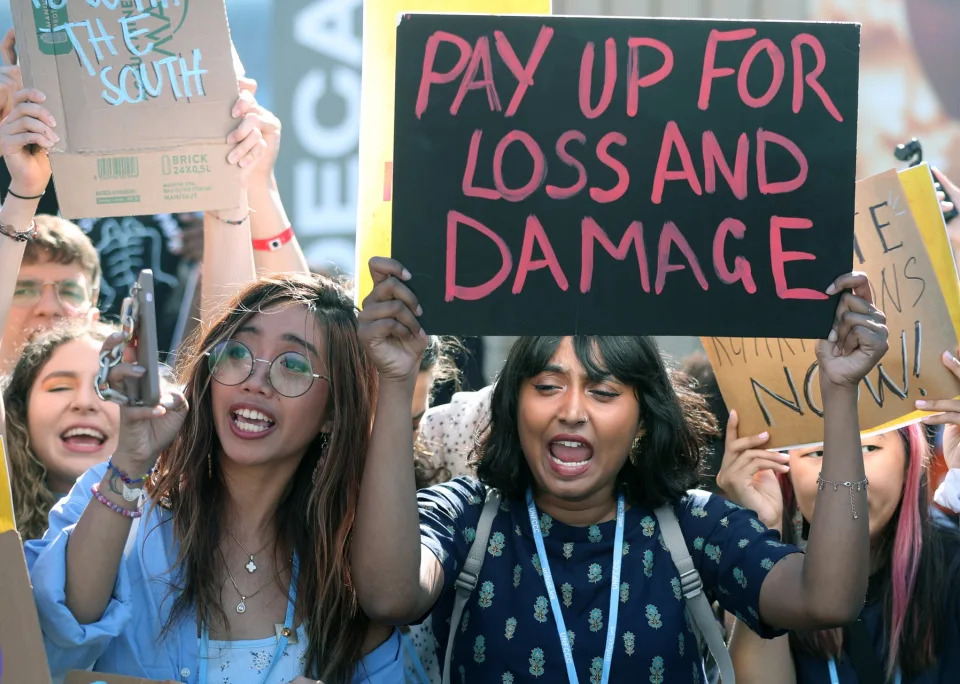(Egypt), Nov 11 – Pablo Sánchez-Bayo is 25 years old, it is the first time he has attended a UN climate summit and yet he has access to negotiating rooms in which not even journalists can enter.
Attending COP27, for him, “has an important part of learning, but of course we will try to give our opinion on the subject to anyone who asks us,” he tells EFE.
If it were able to participate more directly in the negotiations, it would affect the issue of loss and damage, one of the issues that has taken center stage in this event and which consists of compensating the most vulnerable countries for climate impacts, which in turn They are the ones that have contributed the least to global warming.
“Here those who are going to suffer the most are those who have participated the least in climate change,” lamented this Master’s student in Architecture in Navarra (northern Spain).
Together with his sister María de él and five other twentysomethings, Pablo is part of the first group of young people accompanying the Spanish delegation at the high-level political forum being held these days in the Egyptian city of Sharm el Sheikh.
This year, for the first time, the Spanish Ministry for the Ecological Transition and the Demographic Challenge (Miteco) brought representatives of the “climate generation” to COP27, an initiative for which it launched a competition for ideas of resilience and climate adaptation projects. climate change, central issues at this summit, and thus select the group that would travel to Egypt.
Three students from the Polytechnic University of Madrid, in addition to Pablo, were selected for their proposal for a “participatory mapping of flood risk to promote urban resilience and risk reduction in Makeni, Sierra Leone”.
María, an agricultural engineer and specialist in international cooperation for development, has worked on projects in Colombia and Sierra Leone.
Aware of the efforts to reduce the inequality gap between the global north and south, she claims her role in climate forums.
“It seems that you don’t work on climate change if you’re not involved in activism or if you don’t act directly on the issues that are discussed in congresses, and that’s not true. We have realized as a result, for example, of that call that what we do is also related to climate change”, he said.
He criticizes the fact that young people, like women, do not even have a theme day entirely dedicated to them, but instead share it with another theme – youth day is also science day, and gender day, gender day. water-, despite the fact that they are issues “as important as decarbonization”.
A mechanism for loss and damage – an issue that has managed to enter the official agenda of the talks – would, in his opinion, be a good way of tackling international climate justice and intergenerational climate justice at the same time, since it coincides that many of the countries that have a younger population are also the ones who are suffering the most from the consequences of warming, he argues.
A few days in Sharm el Sheikh have served this 26-year-old engineer, who instead of contact cards spreads her data with a QR code -and thus “not waste paper”- to weave all kinds of networks between youth delegations in the COP: activists, speakers and political formations.
“We climate activists have to claim our place in spaces of power, even if they are hostile,” insists the 29-year-old activist Irene Vivas, who has traveled with the delegation of the European Young Greens.
Although she knew that this COP “was going to be difficult” due to “the war in Ukraine and all the conflicts of interest that Europe has regarding issues as important as energy”, Vivas considers it “important” to be here “to observe those decisions that are they take, to communicate about them, to make visible everything that is not decided and to put pressure on our leaders to protect the 1.5 degree target that is in mortal danger.”
For her, it is vital to maintain the goal of setting a degree and a half as a warming threshold that should not be exceeded under any circumstances, since “it is the only scenario that allows the planet to continue to be habitable for everyone.”
In addition, she does not want this summit to “be a success” for the Egyptian government, which, according to the activist, would mean that the COP is not instrumentalized to “whitewash human rights relations”, nor that it becomes a place “where to invest new fossil fuel structures and infrastructures.
Finally, he also highlights the negotiation regarding loss and damage, since he believes that we must “pay the bill for our development”, something in which he does not place great confidence because “10% of our societies, which are the most responsible They are the ones who are deciding what has to be done.”

